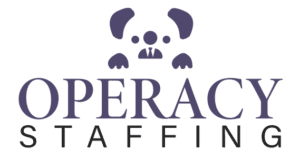
Outsourcing has become an increasingly popular strategy for small businesses looking to reduce costs, improve efficiency, and expand operations. However, successful outsourcing relationships require clear communication between all parties involved. Effective communication is essential in establishing expectations, building trust, and ensuring project success. In this article, we will discuss the role of communication in successful outsourcing relationships and provide in-depth steps worth implementing for small businesses.
Importance of Clear Communication
Clear communication is the foundation of successful outsourcing relationships. Small businesses must establish clear lines of communication from the outset, outlining the expectations and requirements of the project. This can be achieved through regular meetings, emails, and other communication channels.
Effective Communication Strategies for Remote and Cross-Cultural Teams
Outsourcing often involves working with remote and cross-cultural teams, which can create communication challenges. Small businesses must adapt their communication strategies to suit the needs of the outsourcing team. For example, it may be necessary to use video conferencing software to facilitatereal-time communication between team members, especially those who are in different time zones.
It is also essential to consider cultural differences when communicating without sourcing teams. Small businesses should be aware of different communication styles and adapt their approach accordingly. For example, some cultures may value indirect communication, while others may prefer direct communication.
Building Trust and Transparency
Building trust and transparency is essential in successful outsourcing relationships. Small businesses must establish open lines of communication to foster trust and build a sense of partnership with the outsourcing team. This can be achieved by sharing project updates, being transparent about project goal sand requirements, and creating a culture of open communication.
Regular feedback and performance evaluations are also essential to building trust and transparency in outsourcing relationships. Small businesses should provide constructive feedback to the outsourcing team, highlighting areas of strength and areas for improvement. Performance evaluations should be conducted regularly to ensure that all parties are meeting project objectives and timelines.
Ensuring a Common Understanding of Project Requirements and Deliverables
Small businesses must ensure a common understanding of project requirements and deliverables to avoid miscommunication and delays. This can be achieved through the creation of a project brief or scope of work, which outlines the objectives, timelines, and deliverables of the project. The outsourcing team should be involved in the creation of the project brief to ensure that they have a clear understanding of the project requirements.
Overcoming Communication Barriers
Communication barriers can arise in outsourcing relationships due to language differences, cultural differences, or technical difficulties. Small businesses must be proactive in overcoming these barriers to ensure effective communication. For example, language differences can be addressed by providing language training for the outsourcing team or using translation software. Technical difficulties can be resolved by using reliable communication tools and technologies.
Choosing the Right Communication Tools and Technologies
Choosing the right communication tools and technologies is essential in successful outsourcing relationships. Small businesses should select tools that are reliable, secure, and easy to use. For example, video conferencing software can be used to facilitate real-time communication between team members, while project management software can be used to track project progress and share project updates.
Communicating Effectively During Project Transitions and Handovers
Effective communication during project transitions and handovers is critical to ensure continuity and maintain project momentum. Small businesses should establish a clear handover process that outlines the responsibilities of each team member during the transition period. It is also important to provide regular updates and progress reports during the handover period to ensure that all parties are aware of project status and timelines.
Managing Communication Conflicts
Communication conflicts can arise in outsourcing relationships due to differences in opinion or misunderstandings. Small businesses must be prepared to manage these conflicts to avoid delays or project failure. Conflict resolution strategies, such as mediation or negotiation, can be used to address communication conflicts. It is essential to remain professional and respectful when managing communication conflicts to maintain the relationship with the outsourcing team.
Training and Development for Effective Communication Skills
Training and development for effective communication skills is essential in successful outsourcing relationships. Small businesses should provide communication training for both their in-house team and the outsourcing team. This can include training on cultural awareness, communication styles, and language skills. Regular feedback and coaching should also be provided to help improve communication skills and ensure that all parties are working towards project objectives.
Evaluating Communication Performance Metrics
Evaluating communication performance metrics is essential to ensure that outsourcing relationships are meeting project objectives and timelines. Small businesses should establish clear performance metrics that measure communication effectiveness, such as response times, quality of communication, and meeting attendance. These metrics should be regularly evaluated to identify areas for improvement and optimise outsourcing relationships.
Conclusion
In conclusion, effective communication is essential in successful outsourcing relationships. Small businesses must establish clear lines of communication, adapt their communication strategies to suit remote and cross-cultural teams,and build trust and transparency through regular feedback and performance evaluations. Small businesses must also ensure a common understanding of project requirements and deliverables, overcome communication barriers, choose the right communication tools and technologies, and communicate effectively during project transitions and handovers. Managing communication conflicts, providing training and development for effective communication skills, and evaluating communication performance metrics are also essential steps worth implementing for small businesses. By following these steps, small businesses can maximise the benefits of outsourcing while maintaining successful outsourcing relationships.
